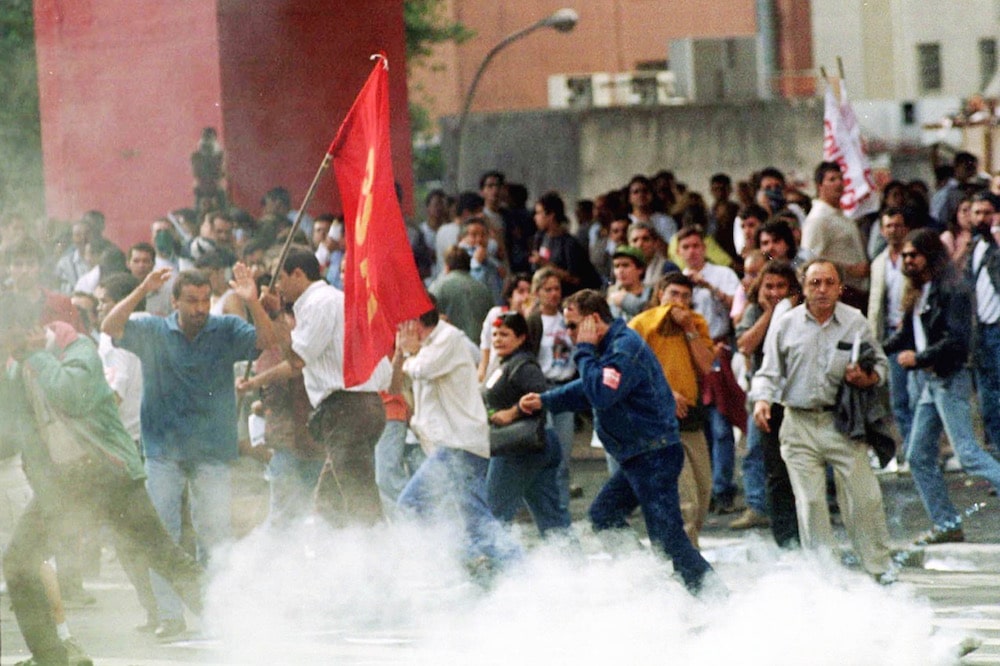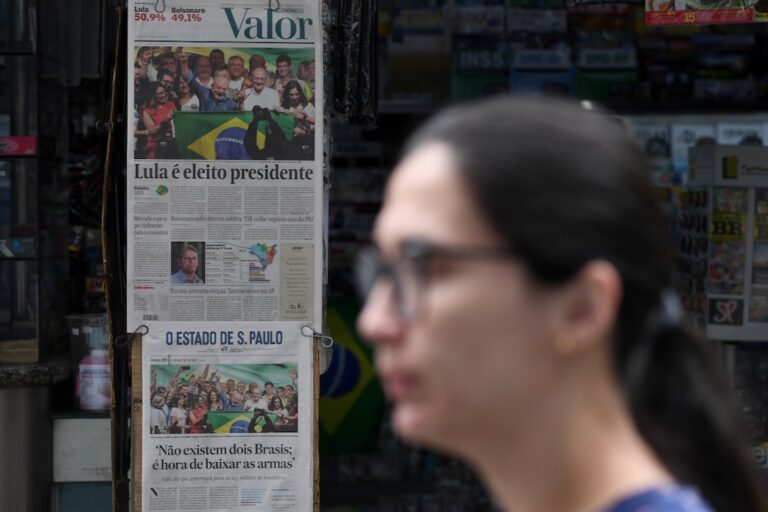In an open letter, 14 organisations, including IFEX and IFEX-ALC, highlight the importance of Silveira’s case for guaranteeing human rights, noting that the case exhibits a history of injustice.
The case of photographer Alexandro Wagner Oliveira da Silveira, hit by a rubber bullet in his left eye during a protest in May 2000, is on the agenda at the Federal Supreme Court (STF) to be tried on August 14. The organisations that sign this open letter emphasise that this moment is crucial, since the Court represents the last chance to correct a serious injustice that marks one of the most emblematic episodes of violence against communicators in the context of protests in the country.
On May 18, 2000, while covering a protest, Silveira was shot in the face by a rubber bullet fired by a military police officer, which led to loss of vision in his left eye. Since then, he has fought for accountability, asking the State of São Paulo to indemnify him for the damages caused to his vision.
The case exhibits a history of injustices, because although the indemnity was granted in the first instance, the São Paulo Court of Justice (TJSP) changed the decision and ruled that the photographer was solely responsible for his injury, since he chose to “remain in the place of turmoil”. The decision of the São Paulo Court confirms the violent conduct of the police in the State, thus encouraging the occurrence of new violations in the context of protests.
The upcoming Federal Supreme Court judgment is important in determining the extent of the State’s responsibility for the injury suffered by Silveira. When the police extrapolate their prerogatives and violently repress protesters and communicators, ignoring rights enshrined in the Federal Constitution, it is the duty of the Judiciary to ensure these rights are guaranteed, including reparation for victims and the accountability of public security bodies.
The right to protest must be guaranteed regardless of the agenda of the demonstrations and the political agreement of representatives of the State and members of the Justice System with its content. In addition, the presence of the press at protests, in a safe manner, must be guaranteed as an indispensable element for the full accomplishment of civil rights, such as freedom of the press, the right to information and the right to protest, which are all essential and non-negotiable rights in a truly democratic society.
However, the decision of the TJSP, in addition to similar ones, fosters police violence, selective repression, harassment of communicators and the obscurity of police actions, violating guarantees that are intrinsic to a democratic state. The silence of the justice system would ensure such violations will continue to be perpetuated across Brazil.
In this sense, another emblematic case is the one of photographer Sérgio Silva, who was also shot in the left eye, while covering the June 2013 demonstrations, and who is still awaiting redress in the justice system. It is worth noting that what happened in Brazil has parallels in other countries in the region, in Chile more than 200 people were victims of serious eye trauma during the wave of protests that took place across the country at the end of last year.
In view of this, the undersigned organizations highlight the importance of Alex da Silveira’s case for guaranteeing fundamental rights, such as the rights to protest, freedom of expression and freedom of the press. It is up to the Federal Supreme Court to correct the serious injustices committed against the photographer to date, safeguarding the individual and collective rights at stake.



